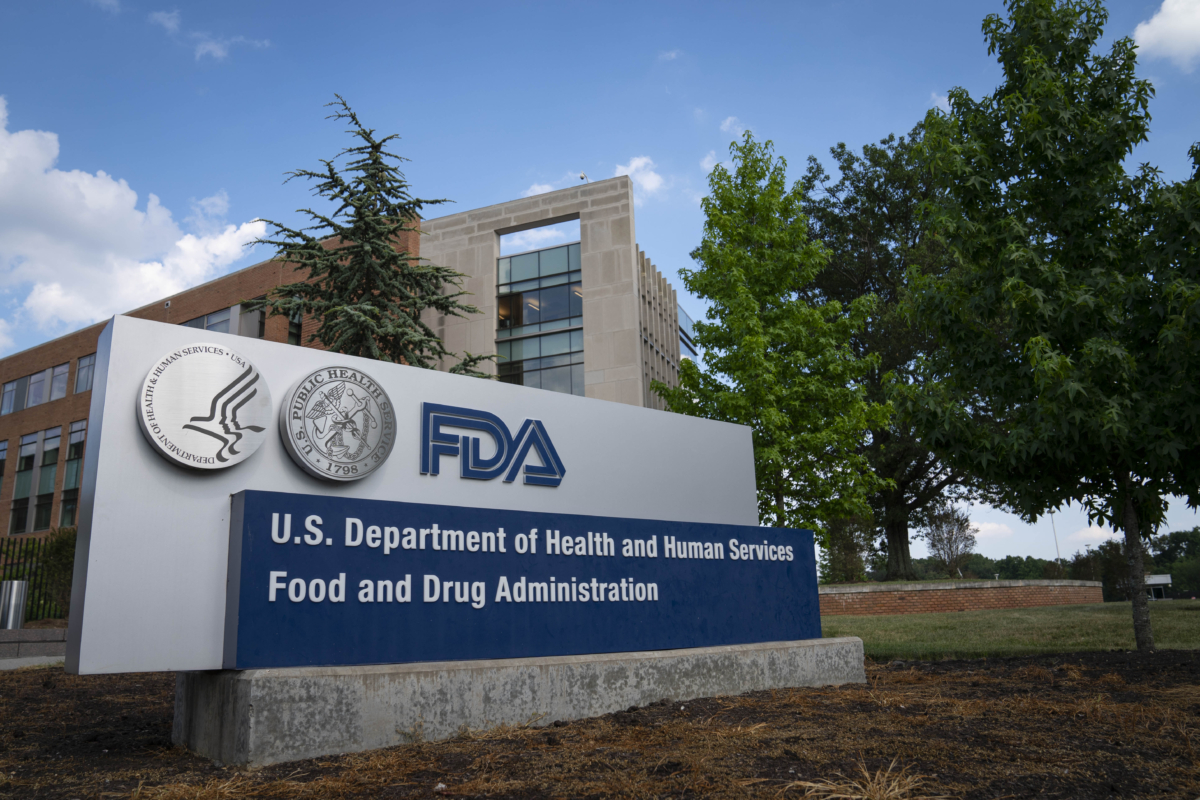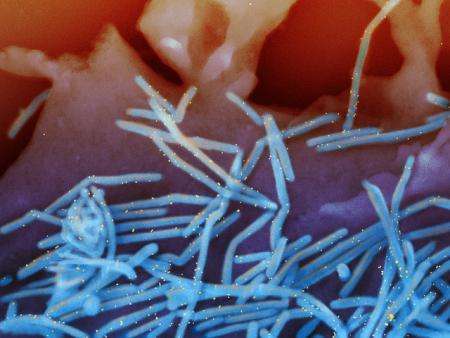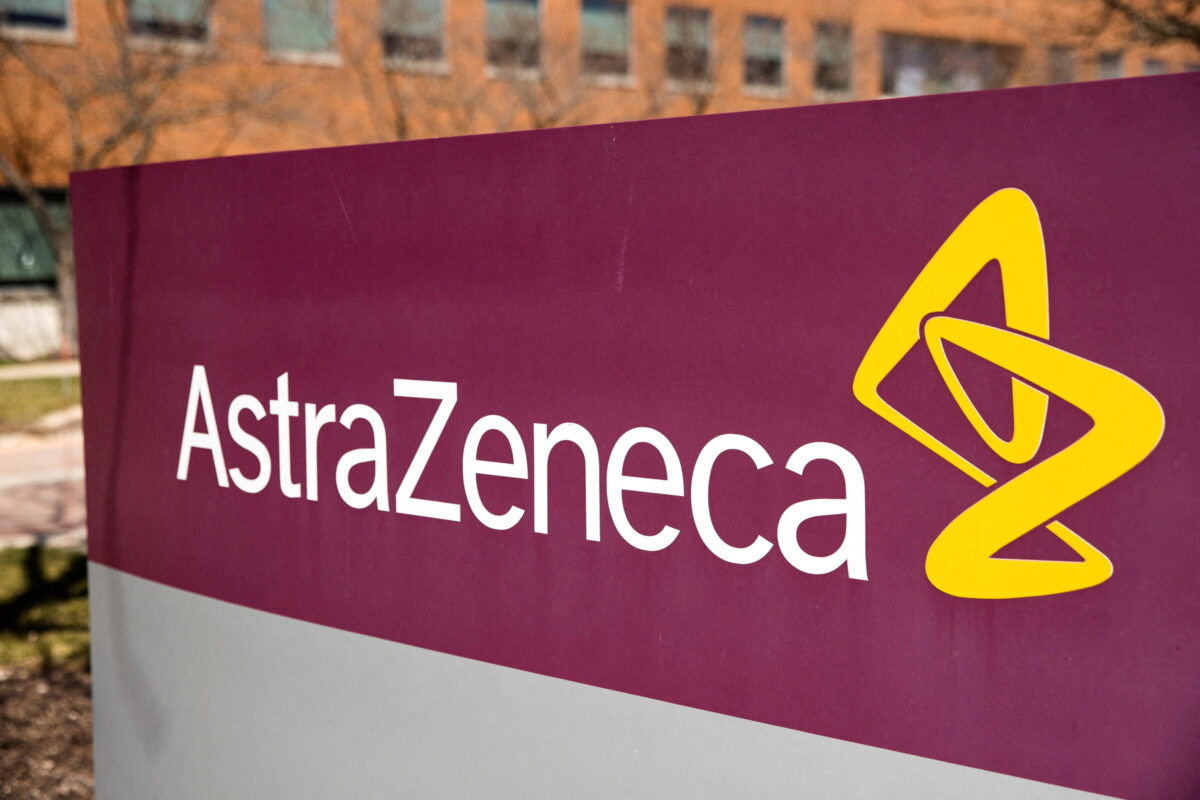


U.S. drug regulators have approved a drug aimed at preventing a respiratory disease in babies and toddlers.
The U.S. Food and Drug Administration (FDA) on July 17 cleared Beyfortus, a monoclonal antibody that prevents respiratory syncytial virus (RSV), a lower respiratory tract disease.
Children up to 24 months of age can now receive the drug, which showed efficacy in several clinical trials.
“RSV can cause serious disease in infants and some children and results in a large number of emergency department and physician office visits each year,” Dr. John Farley, director of the FDA’s Office of Infectious Diseases, said in a statement. “Today’s approval addresses the great need for products to help reduce the impact of RSV disease on children, families and the health care system.”
The drug will be available ahead of the next RSV season, which begins in the fall, according to AstraZeneca and Sanofi. The cost of the drug is not clear yet. It will come in a single 50-milligram dose for infants weighing under 5 kilograms, a single 100-milligram dose for infants weighing at least 5 kilograms, and a single 200-milligram dose for children up to 24 months of age entering a second RSV season.
“Beyfortus is the only monoclonal antibody approved for passive immunization to provide safe and effective protection for all infants during their first RSV season. I am proud that, by prioritizing this potential game-changer, we are now about to bring Beyfortus to American families,” Thomas Triomphe, an executive vice president at Sanofi, said in a statement.
AstraZeneca developed the drug and Sanofi plans to market it.
Advisers to the FDA in June unanimously recommended the agency approve the monoclonal antibody, which is also known as nirsevimab.
Advisers said data from the trials supported making the drug available to young children.
Regulators in other countries, including Canada and the United Kingdom, have already approved Beyfortus.
One trial of 1,453 preterm infants, 969 of whom received the drug, showed a 70 percent reduction in medically attended RSV lower respiratory tract infection, meaning all visits to health care providers with a positive RSV test and worsening lower respiratory tract disease.
Another trial of 1,490 preterm and normal infants, 994 of whom received the drug, showed 75 percent reduction in medically attended RSV lower respiratory tract infection. The serum concentration waned over time, indicating a need for a second dose in the next season.
Both those trials featured groups that received placebo. The trials were randomized and double-blinded. Most participants were younger than 8 months of age. Some participants discontinued, primarily due to being withdrawn by a parent.
A third trial compared children who received Beyfortus to children who received a different monoclonal antibody called palivizumab, the only drug approved previously to prevent RSV lower respiratory disease. Children were in their first year of life. There was little difference in efficacy between the groups.
The children who received Beyfortus experienced more severe adverse events in each trial.
Of the 16 children who died, 11 had received Beyfortus. None of the deaths were related to the drug, according to the FDA. For eight children, the cause of death was “clearly unrelated” to the drug, including a child who had a skull fracture after being hit by a car. Two deaths were from lower respiratory tract infections, but were deemed likely related to underlying conditions. The other two deaths were children found dead in their cribs.
Beyfortus recipients were also more likely to experience upper respiratory tract infection than those who received placebo of palivizumab.
Advisers to the U.S. Centers for Disease Control and Prevention (CDC) are slated to issue considerations for health care providers who administer Beyfortus, as well as which babies and toddlers should get the drug. CDC officials earlier this year said the benefits of the drug outweighs its risks.
RSV is a common virus that typically causes mild symptoms similar to a cold. Nearly every child will contract RSV by the time they turn 2, according to the CDC.
A small percentage of children who contract RSV experience severe symptoms, including inflamed airways in the lungs.
Some patients, especially infants younger than 6 months, are treated in hospitals when they are suffering from difficulty breathing or other serious problems.
Each year, 58,000 to 80,000 children younger than 5 are hospitalized due to RSV, according to the CDC. Premature infants are among the groups with the highest risk of severe RSV.
“One to two out of every 100 children younger than 6 months of age with RSV infection may need to be hospitalized,” the CDC says.
Patients are treated with IV fluids and other treatments and are usually discharged after a few days.
What topics would you like to read about? Please let us know at health@epochtimes.nyc


